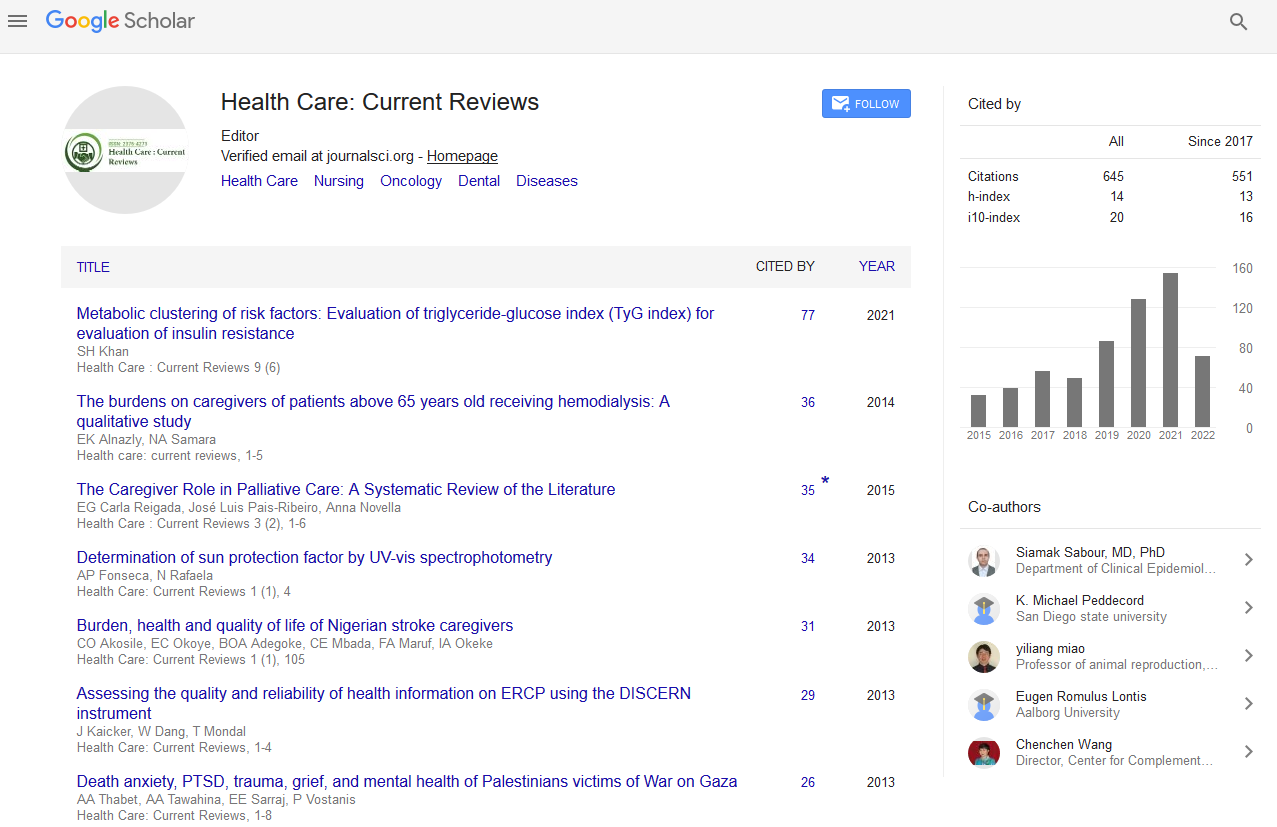PMC/PubMed Indexed Articles
Indexed In
- Open J Gate
- Academic Keys
- RefSeek
- Hamdard University
- EBSCO A-Z
- Publons
- Geneva Foundation for Medical Education and Research
- Google Scholar
Useful Links
Share This Page
Journal Flyer

Open Access Journals
- Agri and Aquaculture
- Biochemistry
- Bioinformatics & Systems Biology
- Business & Management
- Chemistry
- Clinical Sciences
- Engineering
- Food & Nutrition
- General Science
- Genetics & Molecular Biology
- Immunology & Microbiology
- Medical Sciences
- Neuroscience & Psychology
- Nursing & Health Care
- Pharmaceutical Sciences
Abstract
Ethical issues in NICUs: The Attitude of Greek Healthcare Professionals Towards the Value of Human Life
Maria Daglas, Vasiliki Petousi and Antonios Poulios
Objective: This paper presents the first Greek empirical research on bioethical neonatal issues. The study goals were: 1) to document and measure the attitude of Greek healthcare professionals' working in NICUs towards the value of human life (intrinsic value vs. quality of life) as ethical decision making guiding principle in the provision of intensive treatment to extremely/very preterm babies and 2) to investigate the socio-cultural and other parameters which form this attitude.
Methods: Questionnaires developed for the EURONIC project and implemented in research in 11 countries were culturally adjusted to the Greek NICU context. Healthcare professionals (n=495) who were employed in Greek NICUs (May 2009-May 2011) and met inclusion criteria were invited to participate. Of those 251 (98 midwives, 82 nurses and 71 doctors) completed a structured, self-administered, anonymous questionnaire (response rate 50.7%).
Results: The reported attitude score (total sample mean attitude score=3.09) indicates that Greek healthcare professionals tend to support the intrinsic value of human life position. Gender (p<0.05), the importance placed on religion (p<0.05) and profession specialization (p<0.01) were found to influence their attitude in statistically significant ways. Specifically, men, professionals who consider religion as being important in their life and midwives and nurses tend to be more supportive of the intrinsic value of life position. NICUs' equipment and personnel, the cost of neonatal healthcare provision, and the burden of disability on the neonate's family have not been found to influence healthcare professionals' attitude in statistically significant ways.
Conclusion: Compared to the findings from other countries in which the EURONIC research was implemented, Greek healthcare professionals appear to hold a rather vitalistic approach and follow the intrinsic value of human life position as their ethical decision-making guiding principle. Socio-cultural and professional characteristics explain ethical decision making differences among healthcare professionals.


